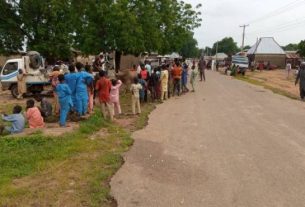The World Bank is poised to approve a groundbreaking $20 billion lending package for Pakistan under a 10-year “Country Partnership Framework” (CPF) designed to support long-term development. This historic deal, the first of its kind, focuses on six key areas of the country’s socio-economic development, targeting critical sectors like health, education, climate change, and fiscal stability.
Scheduled for approval by the World Bank board on January 14, 2025, the framework will span from 2025 to 2035, coinciding with Pakistan’s next three general elections. This long-term approach is designed to ensure the continuity of vital projects, regardless of political transitions, which have historically disrupted development efforts.
The CPF aims to address persistent challenges such as high child mortality, stunting, learning poverty, and low investments in essential public services. With Pakistan’s economic recovery still underway after multiple crises, including the Covid-19 pandemic, natural disasters, and political instability, the World Bank sees this as an opportunity to provide sustained support for the country’s most pressing needs.
Six Priority Areas for Development
The World Bank’s package will target six specific outcomes:
- Reducing Child Stunting and Improving Health: The framework aims to enhance nutrition, family planning, and maternal health services, benefiting millions of Pakistan’s most vulnerable populations. This initiative targets reducing child stunting by 30% over the decade and expects 54 million people to access improved health and nutrition services.
- Reducing Learning Poverty: A key goal is improving primary and secondary education enrollment and retention, especially for girls, who make up a large portion of the out-of-school population. The program aims to provide better education for 12 million children, significantly reducing learning poverty.
- Increasing Climate Resilience: Pakistan faces significant climate challenges, including water scarcity and agricultural risks. The framework seeks to bolster resilience through targeted climate interventions, providing 78 million people with enhanced climate risk resilience and ensuring nutrition security for 17 million individuals.
- Decarbonizing the Economy: The plan will focus on reducing greenhouse gas emissions and improving air quality, with goals of lowering particulate matter concentrations and generating 10 gigawatts of renewable energy.
- Improving Fiscal Stability: The World Bank will support Pakistan in increasing revenue collection and rationalizing public spending to create a more sustainable fiscal framework. A key target is to raise the tax-to-GDP ratio to 15% while directing increased resources to social services for the most vulnerable populations.
- Boosting Private Investment: The framework aims to facilitate $20 billion in private capital investment, driving economic growth and productivity.
Financing Breakdown and Support
The total package includes $14 billion from the World Bank’s concessional arm, the International Development Association (IDA), and an additional $6 billion from the International Bank for Reconstruction and Development (IBRD). A further $20 billion will be mobilized through private sector financing via the International Finance Corporation (IFC) and the Multilateral Investment Guarantee Agency (MIGA), bringing the total value of the support package to $40 billion.
This multi-layered approach combines concessional loans for public projects with private investments designed to catalyze long-term growth. The World Bank’s shift toward larger, more stable projects marks a departure from short-term, fragmented investments typical of previous engagements.
Long-Term Vision Amid Political Instability
The 10-year framework is designed to mitigate the impact of Pakistan’s political instability, offering a stable, focused plan that remains largely insulated from the frequent changes in government priorities. By prioritizing sectors with broad political support, the World Bank hopes to avoid the fragmentation and delays that have hindered past initiatives.
Despite the challenges Pakistan faces, including a volatile macroeconomic environment and external shocks, the World Bank’s commitment to the CPF reflects confidence in the country’s long-term development potential. The partnership aims to reduce poverty, build resilience, and create a sustainable economic foundation for future generations.
With the approval process set to culminate in mid-January, Pakistan will begin preparing for the implementation of this transformative framework, a crucial step in its recovery and development over the next decade.
(Reuters pic)


